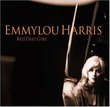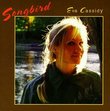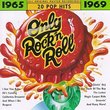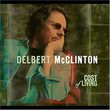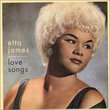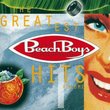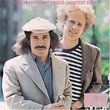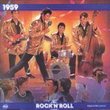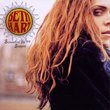| All Artists: Bo Diddley Title: 2-CD Chess Boxed Set Members Wishing: 4 Total Copies: 0 Label: Chess Original Release Date: 8/21/1990 Re-Release Date: 7/19/1990 Genres: Blues, Pop, R&B, Rock Styles: Chicago Blues, Electric Blues, Oldies, Oldies & Retro, Rock Guitarists Number of Discs: 2 SwapaCD Credits: 2 UPC: 076731950228 |
Search - Bo Diddley :: 2-CD Chess Boxed Set
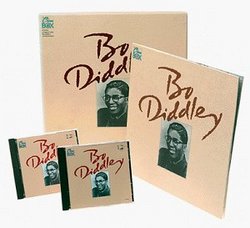 | Bo Diddley 2-CD Chess Boxed Set Genres: Blues, Pop, R&B, Rock
Japanese only SHM-CD (Super High Material CD - playable on all CD players) pressing. Universal. 2008. |
Larger Image |
CD DetailsSynopsis
Album Description Japanese only SHM-CD (Super High Material CD - playable on all CD players) pressing. Universal. 2008. Similar CDs
Similarly Requested CDs
|
CD ReviewsDiscover what the radio program manager kept from you. R. Hogan | 01/30/2006 (5 out of 5 stars) "I listened to both CD's twice in one weekend. Not a bad cut to be found. I always knew in my gut there must be more to Bo Diddley than what I heard on the airwaves, and this set double confirms it! I regret I waited so long to enjoy much more of what Bo has given us." Jungle Music 101: Essential Reading J P Ryan | Waltham, Massachusetts United States | 12/26/2008 (4 out of 5 stars) "Bo Diddley's 1990 "Chess Box" was a revelation to me when I first bought it 18 years ago. A longtime fan of great popular music, I'd loved the Stones, The Clash, Muddy Waters, Yardbirds, New York Dolls and Billy Stewart, to name just a handful of greats whose work was profoundly shaped by Mr Diddley. After forming his superb group during 1948 - 50, Bo & Co. (Jerome Green, Clifton James, Billy Boy Arnold) honed their chops and identity in Chicago clubs, and by 1954 were shopping demos to the likes of Edward Abnak at Vee Jay, who dismissed them. Undaunted, Bo soon visited the Chess brothers, who signed him to the label's Checker imprint. Checker issued Bo's first single early in 1955, when the artist was 26, and armed with one of rock 'n' roll's greatest singles, 'Bo Diddley'/'I'm A Man', the label had a smash on its hands. Bo's recording debut came out shortly before Chuck Berry's 'Maybelline' and nearly a year before Elvis made 'Jeartbreak Hotel' for RCA. Bo was no sex symbol, and he was not white, so unlike Elvis he never exuded the raw sexuality that had girls shrieking every time Presley hip-shaked, attaining near instant status as rock n' roll's first true icon and cultural lightning rod. More classic Bo Diddley singles were released later in 1955, with less dramatic success, setting a hit-and-miss pattern that continued for more than a decade. Yet Bo Diddley's influence exceeded his star power; he would never be the subject of a lavish reissue campaign, not even when Bo turned 60, 75, or passed the 50th anniversery of his recoding debut. Unlike bown-eyed-handsome-Chuck Berry Bo has never been considered marketable enough to warrant a terrific Hollywood tribute film shaped by a (in 1988) big-name director, Taylor Hackford along with music director Keith Richards. Keith was as deeply steeped in Bo as he was Berry - the Stones' first British theatre tour, in 1963, after they had after conquered the London clubs placed them on a bill opening for Bo Diddley (who would become a life-long ally and friend) as well as The Everlys. Chuck Berry conciously wrote verbally and musically literate, accessable hits both white teenagers and black kids could relate or at least dance to. Try as he often did to repeat his initial success, writing Berryesque car songs ('Cadillac') or roaring through the latest - or more likely, his own self invented - dance craze ('Craw Dad'), Bo was too original, too unlike his intended audience of Bandstand kids, to ever come across as other than his own utterly exotic, raw, sometimes goofy, invariably singular self. You might love 'Crackin' Up', 'Cookie Headed Diddley' or 'Spanish Guitar', but even if kids felt the power of the music one could hardly expect a widespread audience to relate to these and other classics. ('Spanish Guitar' was one of many dazzling instrumentals that define another aspect of Diddley: the innovator, the guitarist who used his instrument to create watery soundscapes, ambience, pure rhythmic drive, almost subliminal placement of his and the other instruments in the total picture - not to mention pure sonic filth of the highest order, with an orchestral sense that to these ears make him the Hendrix of his generation). The songs are too exotic, too unhinged in terms of sensibility, never quite fitting into blues, rock 'n' roll, soul, funk, or any category other than "Bo Diddley" to cross over on a regular basis. Thus Bo couldn't aspire to the unlikely status of household name another unrepentant original, Little Richard, achieved, with that unlikely yet super-sized persona comprised of part flamboyant-gay-black-man (in the 1950s!), part sheer ego driving a need to not just fit in but be THE epicenter through sheer energy personified, and of course part rock 'n' roll genius. Yet Bo Diddley was much more than a rhythm that's been appropriated by nearly every rocker from the Who, Stooges, Velvets (whose great drummer, Maureen Tucker, idolized Diddley), Roxy Music, and countless others. Even after his death this year at 79, which inspired some, but too little serious appreciation, the artist is vastly underrated. Only one (!), of more than a dozen classic Checker albums issued during 1957 - 1966 was remastered for CD and as of this writing remains in print, 1960's "Gunslinger". Bo created a remarkable, prolific, and astonishingly varied and experimental body of work during his fat years at Chess (roughly 1955 - 67, with occasional high points such as 1995's "A Man Amongst Men" appearing later), exploring a variety of genres from doo-wop to proto-grunge to funk, yet rooted always in the culture and sounds of Bo's 1930's-'40s childhood and adolesence, most obviously the blues from the Mississippi Delta, as well as the eclectic Carribean/French/African gumbo out of New Orleans, as well as childhood nursery rhymes and games all absorbed and integrated in his work. His stated goal was to create "Jungle Music" (recall how subversive the phrase, with its not-so-veiled racism and sexual hysteria, was in the 1960s), and for certain he succeeded. Bo was less smooth than Chuck, lacking Berry's poetic gifts, but his music was more physical, primal, predating and equal to the sheer impact of the early Stones, Iggy's Stooges, The Velvets' 'Sister Ray', or James Brown. Never a blues purist (Bo was 13 and 18 years younger than his Chess labelmates Muddy Waters and Howlin' Wolf, respectively), he was steeped in music early, and studied classical violin for several years as a child. He began making his own guitars while in Foster vocational school.
As for the box under discussion, one has caveats: one might opt for one of the recently issued, excellent sounding single disc (2007) and double disc (2008) retrospectives, compilations that may not delve deep but offer many of Diddley's better known classics and recreate the impact of Bo's music in a way not possible in 1990, as "The Chess Box's" sound is typically thin, early digital. There is a nice balance of classics and rare or unissued gems from the vaults, but hopefully most of this material will continue to be issued as Hip-O's ongoing series of collected Chess studio recordings. But this box is worthy of investigation despite these limitations, which also, I should not, include relative (only 2 CDs, each barely over an hour) brevity of what is after all, and certainly looks like, a serious career-spanning "boxed set". So get "The Definitive" (2007) or "Gold" (2008) if you're reticent or strapped for cash. But, if you can afford to invest, I strongly recommend Hip-O label's essential and comprehensive restoration of Bo's "Complete Chess Studio Masters", released in easily digestable, and hopefully affordable 2-CD sets that are meticulously annotated (correcting earlier mistakes about dates, musicians, etc) and prepared. A godsend for serious fans long frustrated at the shabby treatment of the catalog, I have reviewed the first volume released a year ago, "I'm A Man", which covers the seminal 1955 - 58 period, collecting every classic, obscure single, unissued track or alternate version worth hearing. Sadly, these sets are innued in a limited edition and the first volume is already out of print! This explains why you'll see it priced at nearly $100. However, the second volume, "Roadrunner: Chess Studio Masters" has just been released. "Roadrunner" collects material recorded during one amazing year, 1958 - 59. Bo began a period of experimentation and home recording that makes this volume both more astonishing and slightly uneven (after all not all experiments succeed). Also, Bo had hired Peggy Jones, one of several women guitarists he has worked with (another singular accomplishment!) by 1958, and the two share a remarkable, telepathic rapport. Finally, what makes 1990's "The Chess Box" worthy, especially if discounted or, perhaps, in a new Japanese-mastered edition, is the book included within the box. Compiler Andy McKaie interviewed Bo for a biographical piece, which is fascinating. Yet even more essential is the revelatory essay by the late, and greatly missed musician/filmmaker/writer Robert Palmer (author of, among other works, the classic "Deep Blues", a superb 1984 biography of The Rolling Stones, and catalyst behind the great film "You See Me Laughin'", profiling the Fat Possum label and Delta greats R.L. Burnside, Jr Kimbrough, and others - though less than a decade old it captures artists who have since died and a culture quickly vanishing). Palmer's essay shows how deeply and passionately he listened and felt the music, and his formidable intellect and analytic grasp vividly make the case that Bo's music is hardly 'primitive' or limited in style or idiom; rather the body of work is shown to be utterly original, personal, yet deeply rooted in complex cultural intersection and history, as well as the artist's life and times - as part of the great Southern black migration to northern industrial cities like Chicago, Bo was a surprisingly young. And Palmer details just how ingenious and flexible Bo's re-conception of rhythmic organization, for example, remains. From his debut, Bo emphasized polyryhthmic arrangements that favor, say, tom-tom's over snare and kick-drum, and of course the sizzle of rock 'n' roll's only famous maracas player, Jerome Green, is always up front in the mix; elswher Diddley integrated wood blocks or claves in his music which often evokes African rhythmic organization, minimizing melody in such a way that presages funk and hip-hop. Then there is the role of Bo's unparalleled guitar - hear it moan like a train whistle ('Down Home Special'), evoke a speeding aeromobile ('Roadrunner'), and marvel at the arsenal of effects, devices, and roles Bo invented for the instrument. Yes, he "utterly reconceptualized rhythmic organization" but the essence of Bo Diddley's music is the undeniable pleasures one derives from this happily undated music. OK, so I'm recommending the "Chess Box" as essential reading, since the glare and sense of lifelessness in the typically premature digital transfer hardly does the music justice. Finally, if you're still not impressed consider this: by the end of the 1950s Bo had left Chicago, where Chess Studios were located, and had begun recording on a three track Presto at his D.C. home. Thus Bo Diddley totally produced and controlled his own work, sending the tapes off to Chess. Such independence was unheard of in black OR white rock 'n' roll or popular music, at least until the emergence of the Stones/Dylan/Beatles 'modernist' era the '60s. It's the end of 2008 as I write this, and the time is right to discover, or rediscover the late Bo Diddley: his 80th birthday is this weekend, and I can't think of a better excuse." |

 Track Listings (24) - Disc #1
Track Listings (24) - Disc #1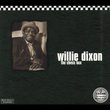


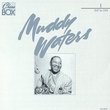

![The Rock N' Roll Era: 1960 [Time Life]](https://nationalbookswap.com/cd//m/04/7904/13247904.jpg)
